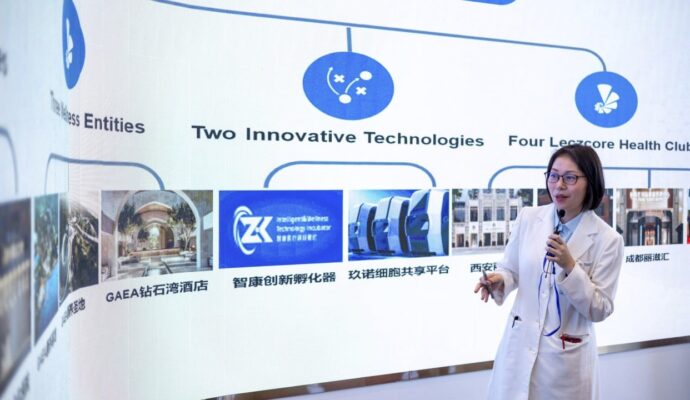The initial decision to stay in the US was based on a belief that speakers were a core technology meant to be made in America, but now Misco was at a competitive disadvantage because “companies who make speakers in America pay three times the tariffs of those who make entirely in China”, Digre told the Post.
That is because the tariffs for importing speaker components from China are 25 per cent versus 7.5 per cent for finished speakers. In short, importing a final product from China makes more sense to the manufacturer of the item than making it in America.
“The idea of the tariffs would be to protect American industry, not make it less competitive,” Digre said. “But that was the effect of the tariffs. It has made our costs higher and therefore us less competitive.”
Despite passing on some of the costs to customers, Misco decided it ultimately made business sense to “build more of its product not in the US but ironically in China”.
As part of his pledge to get tough on China, former US president Donald Trump announced four tranches of tariffs from 2018. The first two, widely known as List 1 and List 2, imposed a 25 per cent tax on Chinese goods worth at least US$50 billion in July and August respectively of that year.
In the ensuing months, List 3 levied a 10 per cent tax on another US$200 billion worth of Chinese goods. This amount was later raised to 25 per cent. In 2019, Trump announced List 4a, imposing a 15 per cent duty on Chinese goods worth at least US$120 billion.
But in 2020, after the US-China trade war left global markets sputtering, Trump signed a deal with Beijing known as phase one, allowing some relief in exchange for promises to buy large quantities of American exports over a two‐ year period and make structural changes to Chinese economic practices.
The agreement cut taxes on List 4a items like speakers, turntables, TVs, projectors and other electronics from 15 per cent to 7.5 per cent. However, the 25 per cent tariffs on List 3, which includes components needed to make speakers, remained unchanged.
US trade eepresentative Katherine Tai has indicated that changes to the tariffs now imposed on imported Chinese goods could be imminent. Photo: AP
US President Joe Biden, who entered the White House in 2021, has largely kept the Trump administration tariffs in place.
Since May last year, the Office of the US Trade Representative has been reviewing the need for and impact of the tariffs. Its assessment is expected to conclude by autumn.
US trade representative Katherine Tai has indicated that changes to the tariffs could be imminent.
“As part of this review, we are considering the existing tariffs structure and how to make the tariffs more strategic in light of impacts on sectors of the US economy as well [as] the goal of increasing domestic manufacturing,” her office said in July in response to inquiries from the US Senate Finance Committee.
The USTR would consider whether an additional tariff exclusion process may be warranted as well as the “ways a future exclusion could be altered to be more effective”, according to the statement.
More than 300 exclusions are in effect, and each is expected to expire on September 30.
In an open letter addressed to USTR and released on July 27, Americans for Free Trade, a coalition of 170 trade associations, urged Tai to “timely” announce a continuation of existing exclusions.
Established in 2018, the group came together “united in the fight against tariffs”, according to its social media account on X, formerly known as Twitter.
American families, workers and businesses continue to face unprecedented and uncertain economic challenges
Americans for Free Trade represents manufacturers, farmers and agribusinesses, retailers, technology companies, service suppliers, natural gas and oil companies, importers, exporters and other supply-chain stakeholders.
The group said that in the past five years “American importers, including members of our coalition, have paid more than US$183 billion” in tariffs, and the USTR’s “last-minute” decisions on exclusions had undermined the administration’s “stated goals of ensuring supply-chain resiliency”.
“American families, workers and businesses continue to face unprecedented and uncertain economic challenges,” the coalition added, describing itself as “one of hundreds of groups and companies who commented about the continuing negative impact of the tariffs and the need for a new strategic approach to address China’s unfair trade practices”.
Meanwhile, lacklustre manufacturing continues to bode ill for those championing US domestic production.
Data from the Institute for Supply Management, an industry non-profit organisation, showed American manufacturing activity in July contracted for a ninth consecutive month, the longest such stretch since the global financial crisis of 2007-2008.
The data showed the purchasing managers’ index at 46.4 last month, a slight increase from 46.0 in June, which was the lowest figure since May 2020. Readings below 50 indicate declining activity.
In addition, US factory employment in July dropped to a three-year low as struggling businesses slashed their headcount to stay viable.
Seven of the 18 industry groups covered by the survey reported a decline in production and employment in June. These manufacturers ranged from textile mills to electrical equipment and from plastics to appliances.
In a letter to Republican congressman Mike Gallagher of Wisconsin, chairman of the House select committee on China, Americans for Free Trade said the tariffs had “disincentivised manufacturing” in the US.
The letter referred to Misco’s experience and quoted the company as saying it felt it had been “penalised for building speakers in America”.
Americans for Free Trade also identified for the panel others burdened by the China-targeted tariffs, such as an IT firm that said it had paid more than US$350 million per year on parts and components designated on Lists 3 and 4a.
But after several unsuccessful attempts to secure exclusions as well as reconfigure its supply chain and cut costs, the firm was “now considering whether to move its manufacturing to Mexico and then import the products into the United States duty-free – putting 1,300 American jobs in jeopardy”, according to the coalition.
Digre said requests for product exclusion from Misco and another speaker company were denied by the USTR during the Trump administration without explanation. He criticised the exclusion review as opaque.
“Nobody knew how the process worked. Nobody knew what the criteria was. And there was no evidence, never any explanation given, of why the exclusion request was denied,” he said. Digre said he believed the review process should be reconsidered by the Biden administration.
In its letter to Gallagher, Americans for Free Trade said it was disappointed the USTR did not offer a public hearing of the government’s tariffs review.


